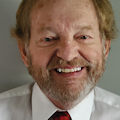After several exhausting years and hundreds of thousands of dollars of education investment, enduring the long, lonely struggle to develop a successful business, then making extraordinary efforts to provide excellent treatment, few people deserve wealth more than dentists. But not many are compensated in a manner equivalent to their sacrifice and effort because they fail to learn the requisite skill of abundance.
Invaluable information exists to instruct those who want to become wealthy. One such resource is The Millionaire Next Door, The Surprising Secrets of America’s Wealthy. Written by Thomas J. Stanley, PhD, and William D. Danko, PhD, sociology professors who specialize in affluence, the book provides a great deal of knowledge. So, let's enhance our understanding of prosperity by studying this millionaire species, as success (and failure) leave clues.
The typical millionaire
The average income of all US families in 2019 was $68,703. The average dentists’ remuneration was $204,710 for generalists and $343,410 for specialists. Of the existing 128.45 million American households, 13.5 million (a bit more than 10%) have a net worth greater than $1 million. Eighty percent of these fortunes are self-made, while 20% is inherited wealth.
The typical millioinaire is 46 years old and married with two or three children. The average annual revenue of millionaires, including investment and other unearned income, is $300,000. Their median net worth is $2.8 million. These wealthy individuals typically work 45 to 55 hours per week and tend to make investment decisions independently.
How dentistry can become a path to financial freedom
Proven tactics the wealthy, including dentists, use to protect their assets
Humble millionaires
The Millionaire Next Door authors repeatedly stress that the majority of self-made millionaires enjoy lifestyles of hard work, perseverance, planning, and self-discipline. How do their behaviors illustrate these values?
Millionaires live well below their means. Most save 15% to 20% of their income and dedicate each month’s first check to investments rather than saving what pittance might remain at month’s end. (For decades, I directed my accountant to send a portion of every salary check to a brokerage account I’d designated. Money never seen is seldom missed.)
All millionaires own their homes, occupying them an average of 18 years, and surrounded by neighbors in similar dwellings. They understand that “the opposite of frugal is wasteful.” The professors suggest that an accurate way to identify the wealthiest physician on a staff is to find out who owns the oldest car in the hospital parking lot.
Millionaires allocate time, energy, and money in ways conducive to wealth-building. They begin investing and planning early and establish clearly defined priorities and goals that lead to asset accumulation. The wealthy devote an average of 8.4 hours per month to financial concerns, while high earners who fail to become affluent devote 4.6 hours per month to fiscal matters.
Millionaires believe achieving financial independence is more important than displaying status. The book contains a colorful Texas description of someone as having a big hat but no cattle. The phrase describes high earners who enjoy luxury homes, cars, clothes, club memberships, and vacations (big hats) but a low net worth (no cattle). Few dentists generate wealth sufficient to attain status and wealth, so they must make a choice.
Millionaires typically care little for “hats” but are deeply concerned with their “herds,” comprised of stocks, bonds, CDs, real estate, money market funds, gold, and more. The continental divide between weal and woe is the decision to consume or save. Ask yourself, has any purchase, no matter how grand or long-anticipated, ever resulted in sustained happiness? While people can’t spend themselves happy, millions spend themselves into misery.
Millionaires' partners are planners and budgeters and are often more frugal than their spouses. Affluent husbands and wives work as a team toward a well-defined mutual goal of wealth accumulation.
Let’s get personal by learning if you are as wealthy as you should be. Multiply your age by annual pretax income and divide by 10 to determine what your net worth should be. For example, if you are a 40-year-old dentist whose pretax annual income averages $200,000, your net worth should be:
40 X $200,000 divided by 10 = $800,000.
Take a moment to determine if your net worth is consistent with your age and income. The Millionaire Next Door predicts many doctors will fail this test because the authors found the relationship between education and wealth accumulation to be negative. That is, the higher one’s level of formal education, the lower one’s net worth tends to be. Why is this?
Part of the answer is lost years of income production (and savings compounding) forfeited to schooling and education-related debit. Startup costs for offices and the associated debt service can also delay wealth. Doctors tend to give generously to charity and are less likely to receive an inheritance than their less-educated siblings. Higher education also tends to lead to elevated lifestyles. Society seems to expect excessive spending from its knowledgeable elite, and many edified high earners meet these expectations.
Not only is money that’s consumed no longer available for wealth accumulation and revenue production, but spending increases the most significant single expense for most American families—taxes. (How do I hate thee? Let me count the ways: federal, state, local, FICA, Medicare, property, sales, gas, liquor, cigarette . . .)
Consumption equals taxation, as one must pay tax on all money spent. An integral portion of achieving financial independence is reducing taxation by employing tax-advantaged investments such as retirement plans or purchasing municipal bonds. The United States taxes earned income but does not tax accumulated wealth until after death through estate taxes.
But many high earners forfeit the chance to achieve accumulated energy in the form of wealth by indulging in the deadly combination of spending and the inevitable taxation. They trade financial well-being for social status, working, planning, and sacrificing for the short-term goal of purchasing to impress others. By contrast, the greatest joys of millionaires are not possessions, but the self-satisfaction derived from their achievements and freedom from anxiety.
The marshmallow test
Evidence indicates that the crucial traits required to accumulate money or excel in other endeavors are evident by the age of four. A famous psychological study conducted in 1972 by Walter Mischel shed light on such essential characteristics and their behavioral choices.
Preschool children were given one marshmallow and told they would receive a second if they waited to consume the first until the adult returned. Researchers filmed their conduct during these few minutes alone with the treat. Many ate the marshmallow, often within moments of the adult leaving. Those who waited and thus doubled their return visibly suffered, putting their hands over their eyes, singing, or walking around in courageous efforts to delay gratification.
Researchers followed these children throughout their school years. The ones who earned the second marshmallow outperformed those who ate theirs by significant margins in grades, test results, and virtually every factor measured.
How do you fare?
Take a moment to evaluate your personal history. How have you fared in your struggle to deny short-term pleasures and secure long-term gain? You may measure yourself by such criteria as a tendency toward debt versus savings or choosing exercise and proper diet instead of overeating. In other words, all life situations where the options are immediate, transient pleasure versus tolerating present discomfort to achieve later rewards. If history shows you tend to choose immediate gratification, but you’re inspired to change, what can you do?
Increase awareness. The first essential ingredient is recognizing your behavior pattern and realizing options exist. Without this basic understanding, chances for meaningful change are slight.
Make a determined effort. Being aware and wanting to change motivates you to make the necessary effort to obtain your desires. Set clear goals, such as saving the money needed before purchasing a car or notable office equipment rather than using debt.
Monitor progress. Measure debts as they melt away or savings as they grow. Observe how your body responds to working out and an improved diet as inches disappear and energy increases. Be ready to adjust your program as needed to obtain your goal.
Reflect on your life’s objectives. If financial freedom is something you’re willing to work to obtain, my suggestions, plus the erudition contained in The Millionaire Next Door, provide a clear roadmap for achieving your desires. Because dentists’ average income is almost four times that of the general population, most have the opportunity to achieve financial freedom, but this accomplishment requires courage, strength, persistence, and determination. It’s a two-marshmallow existence.
Don't these qualities describe the person you always wanted to be?
This article originally appeared in DE Weekend newsletter. To subscribe, visit dentaleconomics.com/subscribe.
After eight years of higher education, paying 100% of the cost himself, John A. Wilde, DDS, spent two years in the Army Dental Corps before beginning a practice from scratch in Keokuk, Iowa. By age 30, he was debt-free, owning outright his new country home and the practice he had designed and built. By 40, John was financially able to retire. At age 53, he fully retired. He has authored six books and over 220 articles, and may be reached at 309-333-2865 or [email protected].
About the Author

John A. Wilde, DDS
After eight years of higher education, paying 100% of the cost himself, John A. Wilde, DDS, spent two years in the Army Dental Corps before beginning a practice from scratch in Keokuk, Iowa. By age 30, he was debt-free, owning outright his new country home and the practice he had designed and built. By 40, he was financially able to retire. At age 53, he fully retired. Dr. Wilde has authored six books and more than 220 articles, and may be reached at (309) 333-2865 or [email protected].
